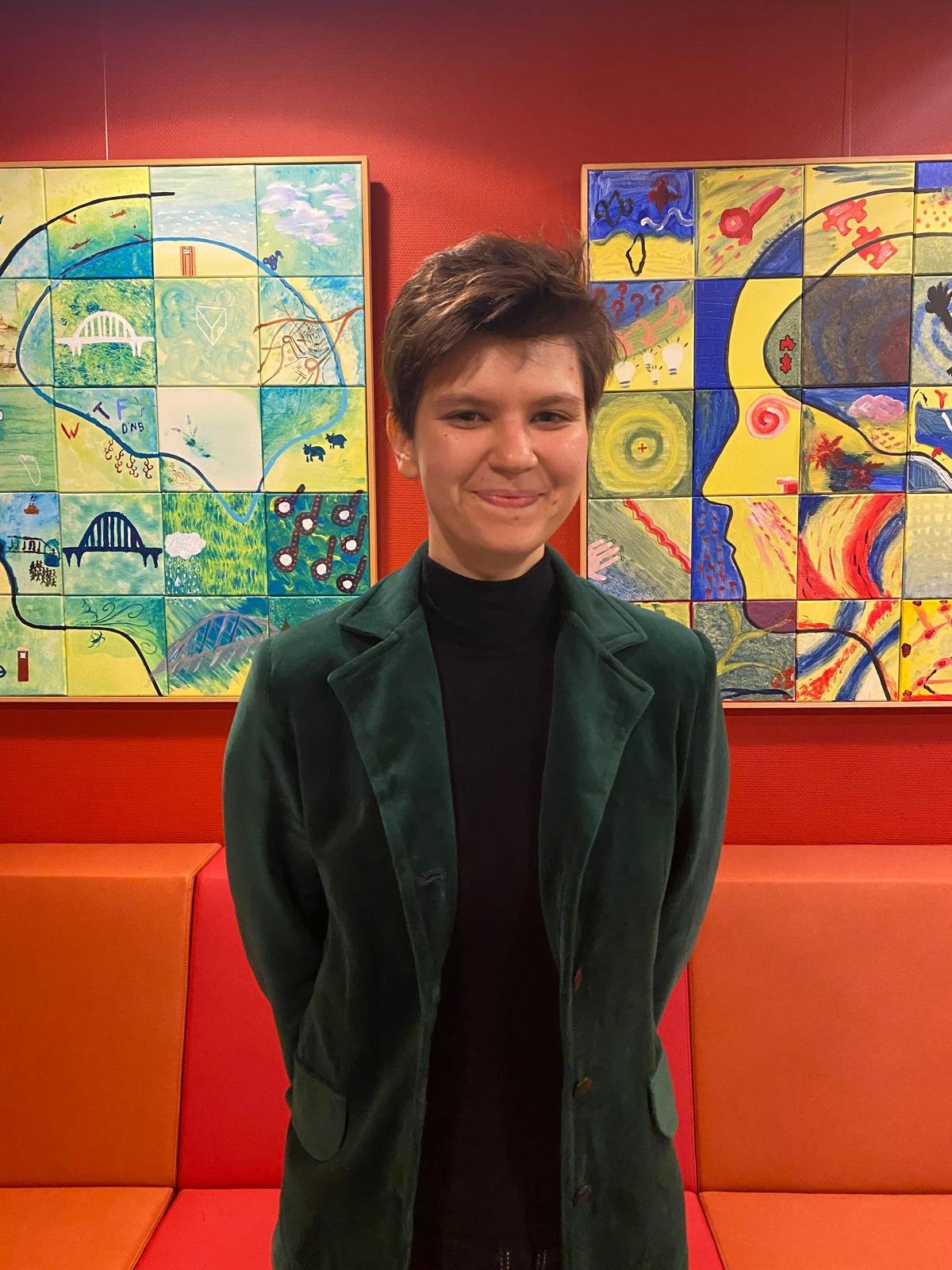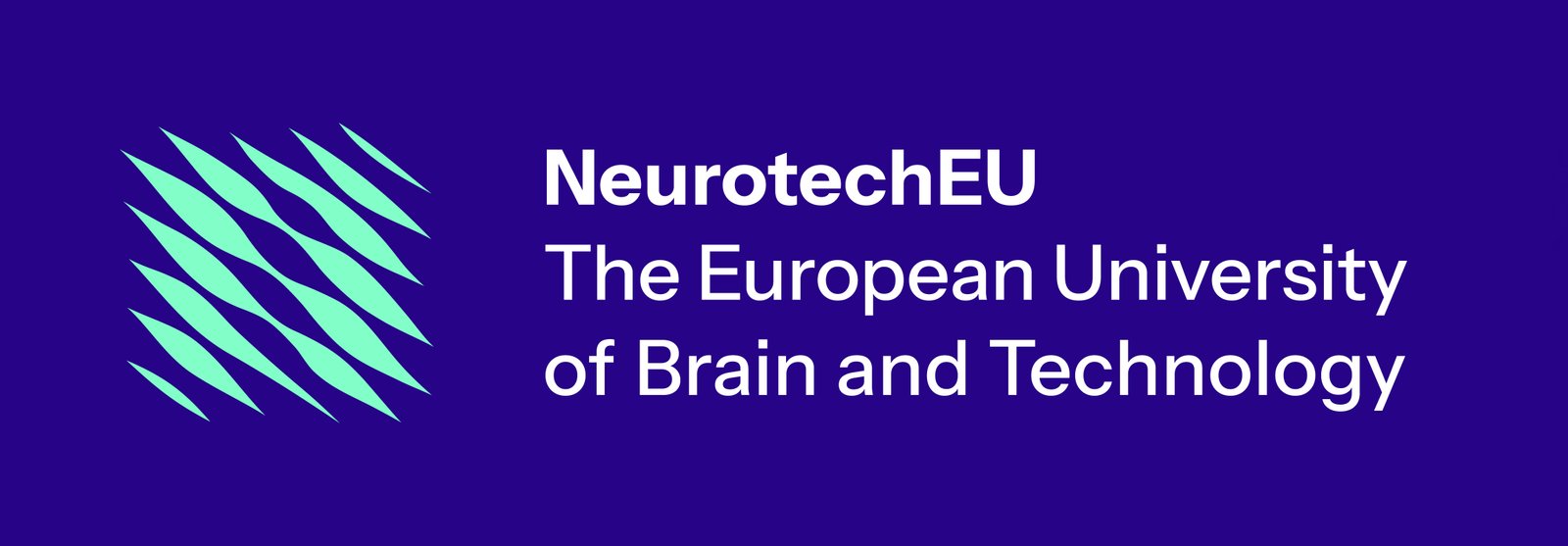Daria, co-chair of the NeurotechEU Student Council: "My goal is to create a stronger sense of belonging within the Student Council"
The Student Council of NeurotechEU acts as the collective voice of the student body within the alliance. As the previous term came to a close, the Student Council recently underwent a full renewal. This transition has brought not only new faces but also renewed energy and ideas for the year ahead. Since its formation in 2020, the council has played a vital role in representing student interests, strengthening communication between students and administration, and organizing events that foster collaboration and engagement across universities. Today, we’re excited to introduce the new members of the Student Council leadership team. Next up is Daria Mihăilă, one of the newly elected Chairs of the council.

With each leadership team serving a one-year term —and individuals allowed to serve a maximum of two years in a specific role— the council is designed to remain dynamic, allowing for fresh perspectives and new voices to regularly contribute to its direction. Re-elections take place annually, ensuring that the structure remains inclusive and forward-looking.
Daria is a Master’s student in Neurophysics at Radboud University, with a background in theoretical physics and a deep interest in neuromorphic computing. Originally from Romania, Daria brings a unique mix of scientific curiosity, international experience, and drive to the Council’s leadership. We sat down with Daria to learn more about her journey, what motivates her, and how she envisions her role within the Student Council.
What made you choose to join the Student Council?
For me, it was about potential. I truly believe that an alliance like NeurotechEU can be incredibly powerful—especially among students. We’re the generation that grew up with technology, and we naturally think about its societal impact differently. I wanted to be part of a structure where that voice matters, where we can actively shape how neurotechnology develops and how it's perceived.
And what made you decide to become a Student Council representative specifically?
I think students are often underestimated in how much they can contribute, especially when it comes to shaping the future of science and technology. Being part of the Council gives us a platform—not only to speak, but to act. I was already involved in Work Package 2 last year, where I ran a survey that gathered input from across the alliance. That helped show me how powerful our role can be.
How do you gather and represent those students' needs?
I ask a lot of questions! I’m quite stubborn when it comes to getting feedback from my peers. We’re also organising more and more student events here at Radboud, which helps. And we’re encouraging other representatives to join the work package meetings as well. We’ve even had meetings with all the work package leads to carve out a clearer role for students—something that was previously quite vague.
Ultimately, my goal is to create a stronger sense of belonging within the Student Council. If we get to know each other better, we’ll work better. We’re planning a team-building event and trying to meet more frequently. It’s about building community.
Did you have any previous experience doing something similar?
Not formally, no—but I’ve always been involved in communities in some way, and I’ve always had this entrepreneurial spirit. I come from a very academic background—my bachelor’s was in theoretical physics, which is not known for being especially social! But I’ve always tried to bring communication and collaboration into my work. I think that’s what I now bring to the Council.
With that background, what do you think you bring to the Student Council in particular?
Energy, motivation, and a bit of persistence. This role can sometimes feel like pushing a boulder uphill. You get tired, things slow down… but then you remember why you’re doing it, and you push again. I’m also quite open and honest. I might not always have the best communication, but I care deeply and try to work together with others to make things better.
What do you think is the most challenging part of your role right now?
Without a doubt: synchronisation and motivation. We’re a group of students from different countries, many of whom have never met in person. And yes, we live in a digital age, but there’s something irreplaceable about real face-to-face connection. The coffee breaks before and after meetings—those informal moments—are so important for building trust and collaboration. That’s what we’re missing a bit.
What do you think makes a scientist a good scientist?
Two things. First, being open to being wrong. I’m really learning that now while working on my thesis. Second, being mindful of the implications of your work. Neurotechnology has huge societal impacts—especially with the rise of non-invasive tech entering the consumer market. As scientists, we understand these tools best, so we have a responsibility to explain and contextualise them for wider society. Not just for grants or academic publications, but for the public.

